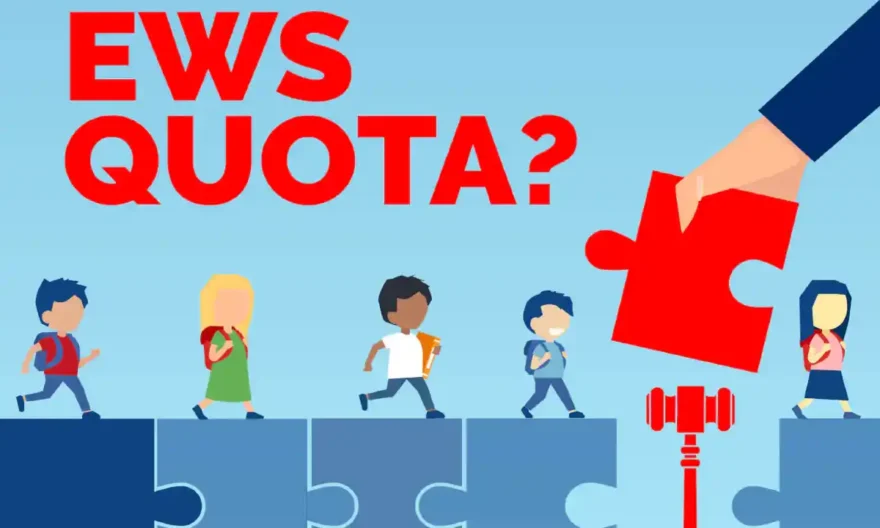
All India Backward classes Federation files review petition against SC verdict upholding 10% EWS quota
The All India Backward classes Federation on Wednesday filed a review petition in supreme court against against its verdict upholding 10% quota for the economically weaker sections.
The review plea argues that decision failed to consider the contention of the petitioner that affirmative action for forward castes/classes was a violation of the basic structure of the Constitution.
EWS is reservation for upper caste/forward classes, with a creamy layer exclusion. It is social/caste reservation, not solely economic reservation, the plea added
The petitioner further stated that If EWS were to be based solely on economic criteria, the petition states that it should be available to all those disadvantaged in terms of applicable economic criteria (family income and other indicators of economic disadvantage) with priority going to those more disadvantaged.
On November 7, a five-judge Constitution bench of the Supreme Court had upheld the 10% EWS quota in a 3:2 judgement. Justices Dinesh Maheshwari, Bela Trivedi and JB Pardiwala upheld the quota, while former Chief Justice UU Lalit and Justice Rabindra Bhat dissented from the majority opinion.
On December 5, The Dravida Munnetra Kazhagam (DMK) had filed a review petition in Suprem court against its verdict upholding 10% quota for the economically weaker sections.
DMK in its petition said that the judgement discriminates against poor from ST, SC & OBC who will be excluded from the 10% quota, when they too are economically backward.
Supreme Court has not considered or even referring to the law laid down by a larger Bench of the Supreme Court in Indra Sawhney case and in fact some portions of the impugned majority opinions overrules/ rewrites the judgement in Indra Sawhney as well disregards the Judgement in NM Thomas case, and coequal bench judgment rendered in Nagaraj , Asoka Kumar Thakur cases, the plea said
The petitioner also stated that the 103rd Constitutional Amendment Act, 2019 has made a large section of advanced classes viz upper caste of population eligible for easy exclusive luxurious reservations.
The Constitution has given them a mask to hide behind the misleading term “Economically weaker sections”. It’s a fact that they have not suffered social stigma nor discriminated from the society or kept away from jobs or from the main stream, the plea added
The constitutional amendment does not define the term “economically weaker sections”. The word “economically” appearing in the 103rd Constitutional Amendment cannot be disjunctively read in isolation without the word “weaker sections” to exclude reservations for SC/ST/OBC’s (which is in conflict with Art 46) who are constitutionally recognised weaker sections, the plea added
The 103rd Constitution Amendment Bill was passed by Parliament in January 2019.
What is EWS Quota and 103rd Amendment of the Constitution
1-Amendment in article 15 (6) and 16 (6) allows reservation for economically disadvantaged of the un reserved category.
2-The 103rd Amendment of Constitution helps the poor who were left out of the 50 percent reservation policy for SC’s, ST’s, and Socially and Educationally Backward Classes (SEBC).
3-This Amendment empowers both the union and State Government to grant reservation every poor and disadvantaged person of the society.
4-This amendment affecting issues of both employment and education
5-The 103rd amendment does not affect in the reservation policy SC’s, ST’s, and Socially and Educationally Backward Classes (SEBC) in any form.
6-The purpose of the 103rd amendment is to bring equality in the society and to break the wall between rich and poor.
7-In the case of Kesavananda Bharati vs. the State of Kerala, the Supreme Court said unequivocally that no law may be issued in the Indian Gazette that undermines or damages the fundamental framework of the Indian Constitution.
8-Union Government argued in the Supreme Court that the 103rd Amendment is properly crafted and effectively combated educational and social inequity by incorporating Articles 15(6) and 16(6).
9-In Tamil Nadu, 69 percent of jobs and school seats are reserved for SC’s, ST’s, BC’s, and MBC’s, compared to 70 percent in Karnataka.
10-This amendment has been passed with a will to make Article 46 mandatory which urges the Government of India to protect all the educational and economic interests of the weaker section of the society.
11-Since the socially disadvantaged sections are getting the privilege, now the economically disadvantaged sections can also get relief.




